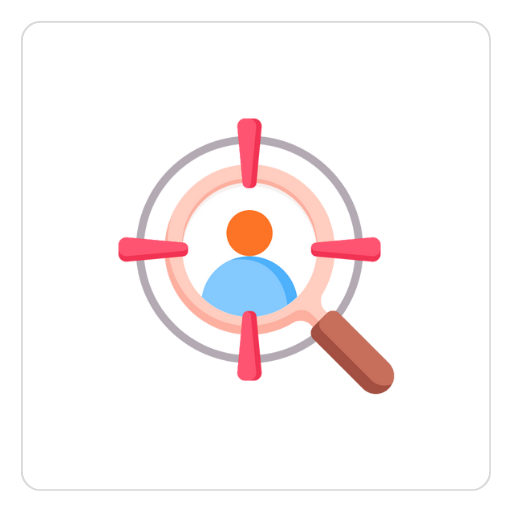Meta Ads
Your audience is already on Facebook and Instagram. Are your ads converting them?
At IZOOF, we help businesses launch high-converting
Meta ad campaigns that bring qualified leads.


Wasting Budget? Not Sure What’s Working?
We fix paid ads issues that cost you time and money:
- Your ads get clicks but not leads
- CPMs are rising, but ROI is shrinking
- Targeting feels random, not strategic
- You don’t know what’s working or why
- Your creatives aren’t converting
- You're not retargeting properly
Our Meta Ads Management Process: Built to Scale Profits
The Step-by-Step Process to Effectively Advertise Your Business on Meta Ads

Audit & Strategy Call
We analyze your account (or set it up) and understand your goals + ideal buyer.

Creative Planning &
Ad Copy
Creative Planning & Ad Copy Our team writes ad copy and designs scroll-stopping visuals for high CTRs.

Optimisation & Scaling
We monitor daily, pause underperformers, scale winners, and adjust audiences.


Audience Research & Funnel Planning
We identify, segment, and build custom audiences that match your ideal customers.

Campaign Setup & Testing
Smart structure, A/B testing, proper budget allocation, no rookie mistakes.
Grow Faster With High-Performing Meta Ads
Launch targeted ad campaigns that boost visibility, drive engagement, and convert audiences into customers.
Reach The Right Audience With Accuracy
We use Meta’s advanced targeting tools to show your ads to people most likely to convert.
- Laser-focused targeting for better ROI
- Reduce wasted spend and improve reach

Design Ads That Capture Attention Instantly
We create scroll-stopping visuals and messaging that drive engagement and increase click-through rates.
- Eye-catching creatives optimized for conversions
- Messaging crafted to inspire quick action

Optimize Campaigns For Maximum Sales Growth
We continuously test, refine, and optimize your campaigns to lower costs and increase conversions.
- Data-driven optimization for better results
- Increase leads and revenue efficiently

What’s Included in Our Meta Ads Management Services
You’ll get:
- Meta Business Manager Setup or Audit
- Full-Funnel Strategy (TOF, MOF, BOF)
- Custom Audience Creation (Interests, Lookalikes, Retargeting)
- Campaign Setup (traffic, leads, conversions, catalog)
- Daily Monitoring & Optimization
- Retargeting + Scaling Tactics

Frequently Asked Questions About AEO
What are meta ads?
Meta Ads are advertisements run across Meta’s platforms, including Facebook, Instagram, Messenger, and Audience Network. They allow businesses to target audiences based on demographics, interests, and behaviors, using formats like image, video, carousel, and story ads to drive engagement and conversions.
How to run meta ads?
To run Meta Ads, create a Meta Business account, set your campaign goal, target the right audience, design engaging ads, choose placements, set a budget, and monitor performance regularly to optimize for clicks, leads, or conversions effectively.
How much do meta ads cost?
Meta Ads costs vary by audience, industry, and campaign goal. On average, cost-per-click ranges from $0.26–$0.70, cost-per-1,000 impressions $8–$13, and cost-per-lead $5–$25. Optimizing targeting, ad quality, and bidding can lower expenses and improve results.
What is meta ads manager?
Meta Ads Manager is Meta’s (Facebook and Instagram) advertising platform that lets businesses create, manage, and track ads. It provides tools for audience targeting, budget setting, ad design, performance analytics, and optimization, helping advertisers run effective campaigns across Meta’s platforms.
How do meta ads work?
Meta Ads work by showing your ads to targeted users across Facebook, Instagram, Messenger, and Audience Network. You set a campaign objective, define your audience, choose placements, and create ads. Meta’s algorithm then delivers them to users most likely to engage or convert, optimizing performance over time.
What is a good cpc for meta ads?
A good CPC for Meta Ads depends on your industry and goals. Generally, $0.70–$1.20 works for traffic campaigns, while $1.90–$2.50 suits lead or conversion campaigns. Lower CPC with strong engagement means efficient ad spending and better results.
How to add someone to meta ads manager?
To add someone to Meta Ads Manager, go to Business Settings, select your ad account, click “Assign People,” enter their email, choose a role like Admin or Advertiser, and send the invite. They’ll get access once they accept.
How to turn off comments on meta ads?
To turn off comments on Meta Ads, open Ads Manager, edit your ad, go to Ad Creative settings, and toggle off commenting or social interactions. Save changes to prevent users from commenting on your Facebook or Instagram ad.
Ready to Grow Your Business with Us?
Tell us your goals, and we’ll craft a strategy to deliver measurable growth, fast!


